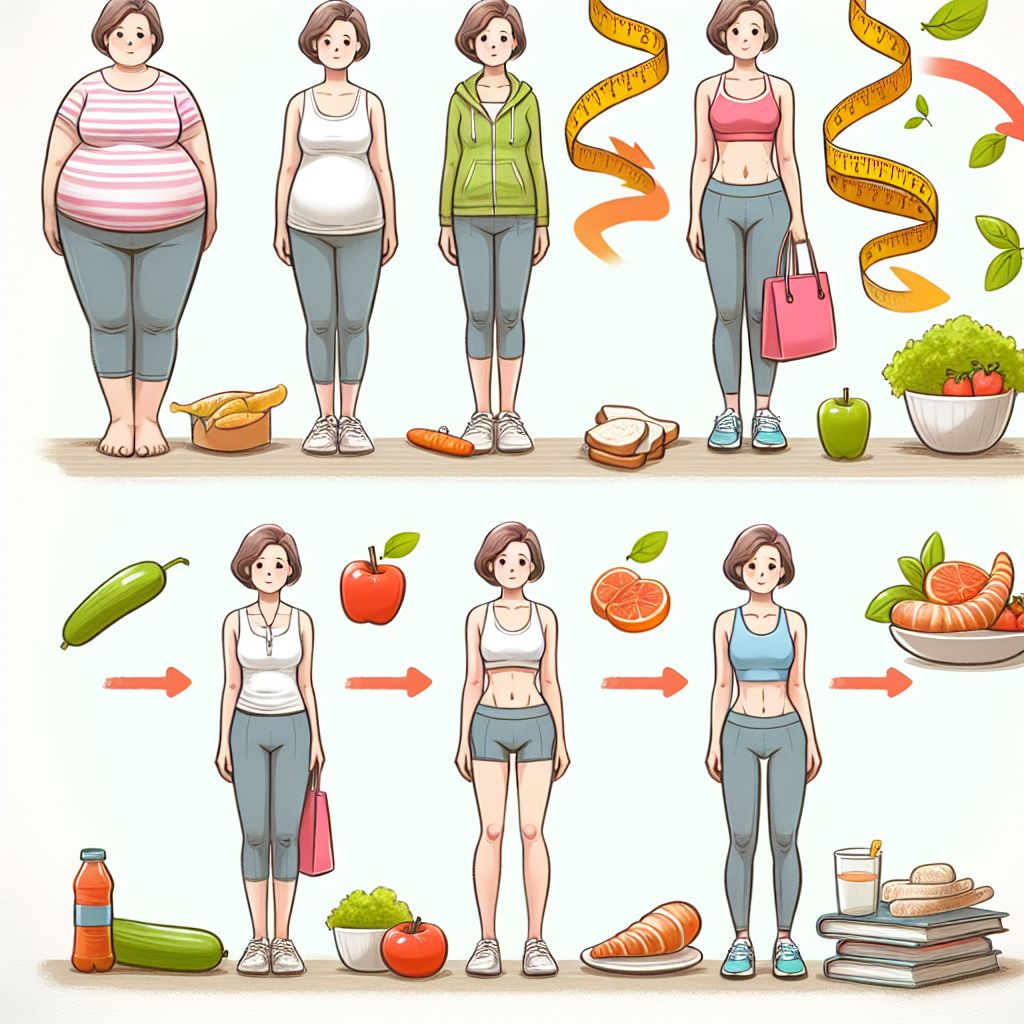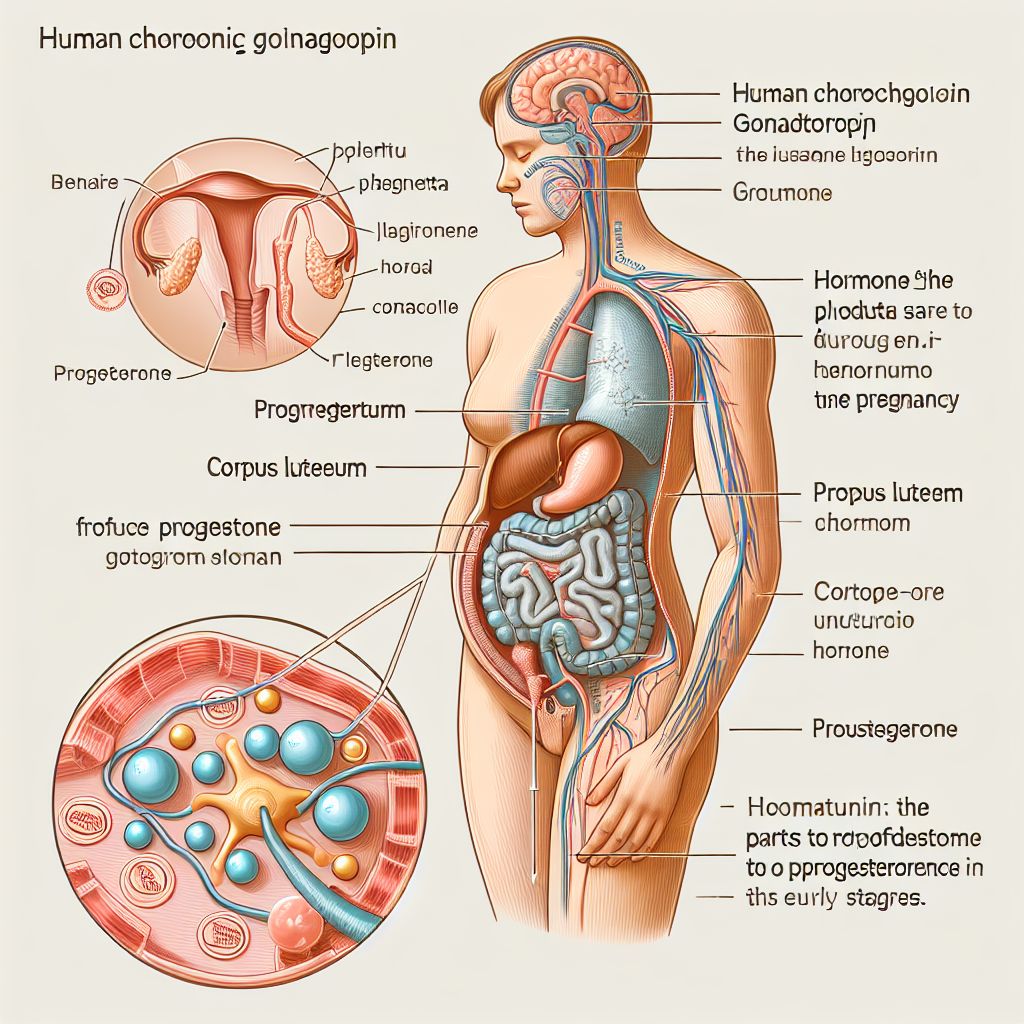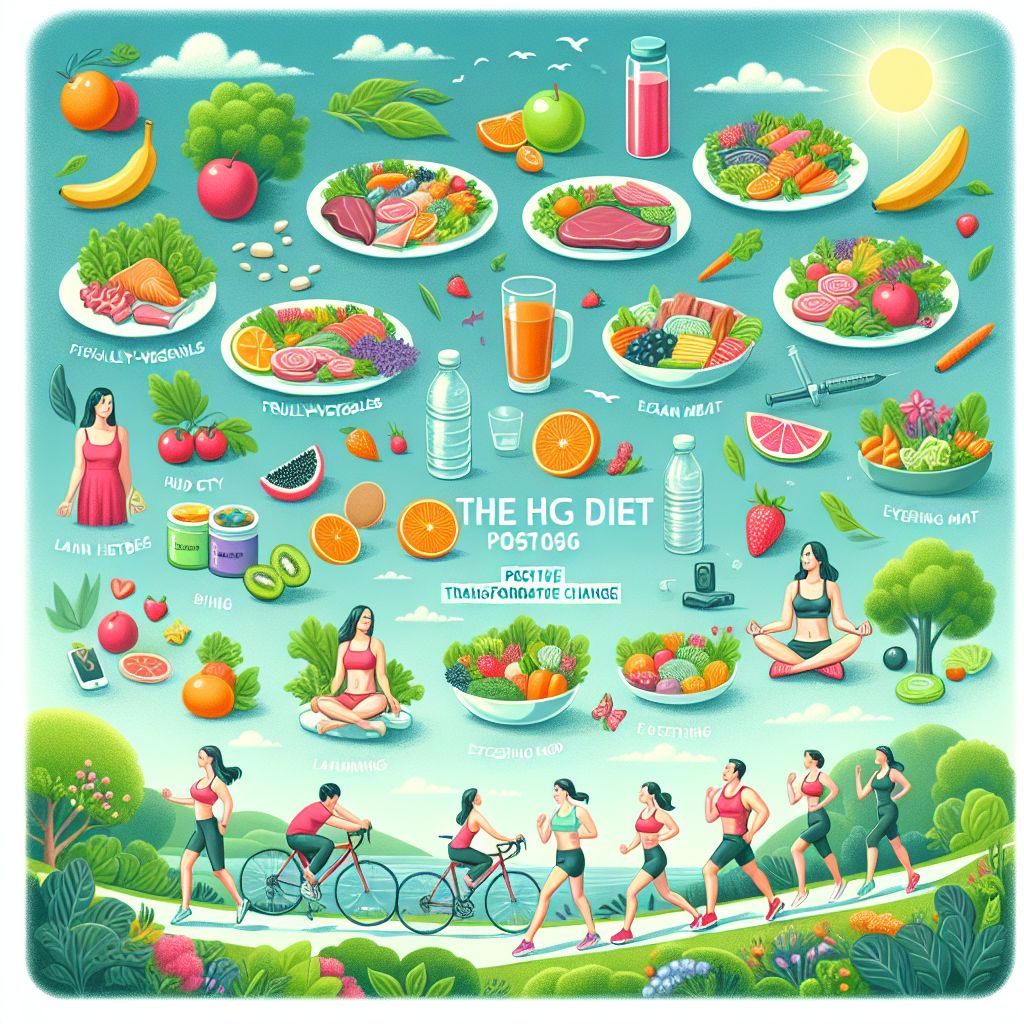
Debunking HCG Diet Myths: Effective Weight Loss Facts & Truth Revealed
Key Takeaways
-
HCG (human chorionic gonadotropin) is a hormone used in a controversial weight loss protocol.
-
Myth: The HCG diet is harmful and provides insufficient nutrition. Fact: When medically supervised, it can be safe.
-
Myth: HCG doesn’t offer sustainable weight loss. Fact: With proper maintenance, long-term results are possible.
-
Understanding how HCG works in the body is crucial to comprehending its role in weight loss.
-
Transitioning to a balanced diet post-HCG is key for maintaining a healthy lifestyle.
Shedding Light on HCG Diet Realities
When it comes to weight loss, the HCG diet has been a topic of intense debate. HCG, or human chorionic gonadotropin, is a hormone that’s been used for decades in the pursuit of shedding pounds quickly. But with fast results come fast-spreading myths. Let’s cut through the noise and look at the facts.
What is HCG and How it Works for Weight Loss
HCG is a hormone produced during pregnancy that has been repurposed for weight loss. Its popularity stems from the promise of losing significant weight in a short period. But how does it work? The theory is that HCG can help reduce feelings of hunger and aid in the use of stored fat for energy. Now, it’s crucial to understand that while HCG might be the star of the show, the diet’s stringent caloric restrictions play a significant role in weight loss.
Breaking Down the Diet Protocol
The HCG diet protocol involves phases – an initial loading phase, a weight loss phase with a very low-calorie diet, and a maintenance phase to stabilize your new weight. Here’s the kicker: the weight loss phase requires a daily intake of as little as 500 calories. Yes, you read that right. It’s this extreme calorie deficit, not just the hormone, that drives the rapid weight loss.
So, what can you eat? The diet is highly specific, allowing for lean proteins, certain vegetables, and a minimal amount of starch. Each phase has its rules, and it’s this structure that proponents say can lead to those dramatic results.
But here’s where the myths start swirling. Some say it’s unsafe and unsustainable. Others argue it’s a miracle solution. As with any diet, the truth lies somewhere in between, and it’s essential to approach it with a healthy dose of skepticism and knowledge.
Understanding HCG Diet Restrictions
The HCG diet is strict, and that’s putting it mildly. It’s not just about what you eat; it’s about when and how you eat it. The diet breaks down into phases, each with its own set of rules. For instance, during the main weight loss phase, you’re limited to two meals a day—lunch and dinner—and each meal must include one protein, one vegetable, one fruit, and one piece of bread.
But it’s not a free-for-all within those categories. Only certain proteins like chicken breast, lean beef, and white fish are allowed. You can forget about your morning avocado toast too; only specific vegetables and fruits are on the menu. And that piece of bread? It’s more likely to be a melba toast or grissini stick than your favorite sourdough.

Understanding HCG’s Role in the Body
HCG is naturally produced in the body during pregnancy, which has led scientists to explore its potential in other areas, including weight loss. The hormone is believed to influence the body’s metabolism, potentially aiding in the rapid breakdown of body fat. But it’s not a magic bullet; it’s meant to be used in conjunction with a calorie-restricted diet.
That’s where the controversy begins. The very low-calorie diet is so restrictive that it can be tough to get all the nutrients your body needs. This is why medical supervision is not just recommended; it’s critical. A healthcare provider can ensure you’re getting enough vitamins and minerals, either through the food you’re eating or through supplements.
HCG’s Biological Function
In the context of pregnancy, HCG’s role is well understood—it helps maintain the production of essential hormones. But when it comes to weight loss, its function is less clear. The prevailing theory is that HCG signals the body to mobilize fat stores, providing energy and nutrients when calorie intake is drastically reduced.
While this theory is the foundation of the HCG diet’s purported effectiveness, it’s essential to note that scientific studies have not consistently supported these claims. This disconnect between theory and evidence is a significant source of the controversy surrounding the diet.
It’s also worth noting that the FDA has not approved HCG for weight loss. In fact, over-the-counter HCG products are illegal in the United States. Prescription HCG is approved for treating fertility issues, which further highlights the importance of medical supervision when considering this diet.
Despite the lack of FDA approval for weight loss, many people have reported positive results with the HCG diet. However, because of the potential risks and the need for strict adherence to the diet, it’s not something to take lightly.
How HCG Supports Fat Loss
When you’re on the HCG diet, the hormone is supposed to help you feel less hungry even though you’re eating fewer calories. This makes it easier to stick to the diet’s strict rules. Additionally, the diet’s proponents believe that HCG helps maintain muscle mass while encouraging fat loss, which is critical because muscle helps burn more calories at rest.
Strategies for a Successful HCG Diet
Achieving success on the HCG diet requires more than just following the eating plan. It’s about adopting a mindset geared towards transformation. You have to be ready for a significant change in your eating habits and lifestyle. And you have to be prepared for the challenges that come with such a drastic reduction in daily calorie intake.
One of the most critical strategies is ensuring you have a support system in place, whether it’s a healthcare provider who understands the HCG diet, a counselor, or a community of people who are also following the HCG diet. This support can help you stay motivated and on track, even when it gets tough.
Key Elements of the HCG Diet Plan
The HCG diet plan is built around a few key elements which include a low-calorie diet and the use of HCG hormone injections. Understanding these components is crucial for anyone considering this weight loss strategy. For a deeper dive into effective diet plans, you might want to explore a personalized weight loss diet plan for fast results.
-
A very low-calorie diet of around 500 calories per day
-
Regular injections or drops of HCG, as prescribed by a healthcare provider
-
A list of approved foods that are high in protein but low in calories and fats
-
A structured eating plan that includes two meals a day, each with one protein, one vegetable, one fruit, and one starch
-
A maintenance phase to help stabilize your new weight after you’ve completed the diet
Best Practices for Maintaining Weight Loss Post-HCG
Once you’ve completed the HCG diet, it’s not time to go back to your old eating habits. The maintenance phase is crucial. During this time, you’ll gradually increase your calorie intake while still avoiding sugar and starch. This helps your body adjust to a more sustainable way of eating.
Most importantly, you should use this time to adopt new, healthy eating habits that you can maintain for the long term. Focus on whole foods, like fruits, vegetables, lean proteins, and whole grains. And don’t forget about exercise; regular physical activity is a key component of any healthy lifestyle.
Here are some steps to help you maintain your weight loss:
-
Weigh yourself regularly to keep track of your progress and prevent significant weight gain.
-
Introduce new foods slowly and monitor how they affect your weight.
-
Stay hydrated, as water can help control hunger and boost metabolism.
-
Get active, finding an exercise routine you enjoy and can stick with.

Living Beyond the HCG Diet
The goal of the HCG diet isn’t just to lose weight; it’s to jump start a lifelong commitment to health. After completing the diet, it’s time to transition to a lifestyle that promotes well-being and prevents weight gain. This means making conscious choices about what you eat and staying active.
It’s not about a quick fix; it’s about making sustainable changes that can improve your quality of life for years to come. That’s the real victory—not just the pounds lost, but the new habits formed and the health benefits that come with them.
Transitioning to a Sustainable Healthy Lifestyle
Moving on from the HCG diet, it’s important to build a healthy relationship with food. This means eating for nourishment and enjoyment, not just for weight loss. It also means listening to your body and understanding the signals it sends you about hunger and fullness.
Here’s the bottom line: a healthy lifestyle is a marathon, not a sprint. It’s about making small, consistent changes that add up over time. And remember, it’s okay to seek help from nutritionists or dietitians who can guide you towards making choices that support your health and wellness goals.
So, take what you’ve learned from the HCG diet about portion control and healthy eating, and use it to fuel your journey towards a balanced, fulfilling life.
Transitioning to a Sustainable Healthy Lifestyle
After the intense phase of the HCG diet, it’s essential to transition to a lifestyle that supports your new weight and nurtures your overall health. This means embracing a balanced diet rich in nutrients, engaging in regular physical activity, and making mindful lifestyle choices that contribute to well-being. The goal is to maintain the benefits you’ve gained from the HCG diet and build upon them for long-term health and happiness.
Balanced Nutrition After HCG: A Practical Guide
As you step into the world of balanced nutrition post-HCG, focus on incorporating a variety of foods that provide the vitamins, minerals, and other nutrients your body needs. Aim for a colorful plate with plenty of fruits and vegetables, lean proteins, whole grains, and healthy fats. It’s not just about maintaining your weight loss; it’s about fueling your body for optimal health.
Frequently Asked Questions (FAQ)
When it comes to the HCG diet, questions abound. Let’s address some of the most common inquiries to help you understand the intricacies of this weight loss strategy and how it fits into a healthy lifestyle.
Is the HCG Diet a Long-Term Solution?
The HCG diet is designed as a short-term intervention to jump start weight loss, not as a permanent solution. While it can lead to rapid weight loss, it’s the habits formed during the maintenance phase—mindful eating, portion control, and balanced nutrition—that pave the way for long-term success.
Can You Undertake the HCG Diet Without Medical Supervision?
Medical supervision is crucial when undertaking the HCG diet due to its restrictive nature and the use of a hormone. A healthcare professional can guide you through the process, ensuring you meet your nutritional needs and addressing any potential health concerns.
How Does the HCG Hormone Affect Appetite During Dieting?
Proponents of the HCG diet claim that the hormone helps curb appetite, making it easier to adhere to the low-calorie regimen. However, individual experiences may vary, and the scientific community has not reached a consensus on this effect. For a deeper understanding, read about the effectiveness of weight loss supplements and the myths surrounding them.
Are There Any Long-Term Side Effects of the HCG Diet?
Because the HCG diet involves a drastic reduction in calorie intake, potential long-term side effects may include metabolic slowdown or nutritional deficiencies. It’s essential to work with a healthcare provider to minimize risks and plan for a healthy diet post-HCG.
-
Consult with a healthcare provider before starting the HCG diet.
-
Ensure you receive proper nutrition during the diet to prevent deficiencies.
-
Be aware of the potential for metabolic changes and plan accordingly.
What Should I Do if I Gain Weight Back After the HCG Diet?
If you find the pounds creeping back after completing the HCG diet, don’t panic. First, assess your eating habits and physical activity levels. Have you maintained the healthy practices you adopted during the maintenance phase? If not, it’s time to revisit those habits.
Consider seeking support from a nutritionist or dietitian to help you get back on track. They can provide personalized advice and help you create a sustainable eating plan. Remember, weight management is a continuous process that involves regular monitoring and adjustments to your lifestyle.
Finally, be kind to yourself. Weight fluctuation is a normal part of life, and with the right strategies, you can regain control and continue on your journey to health and wellness.
As we wrap up, remember that the HCG diet is just one chapter in your health story. It’s the lessons learned and the habits formed that will carry you forward. So, take the knowledge, the discipline, and the commitment you’ve gained from this experience and use them to fuel your ongoing pursuit of a healthy, balanced life.
If you’re ready to take the next step in your weight loss journey with a structured and medically supervised plan, consider exploring the HCG diet. For a comprehensive guide on Dr. Simeon’s HCG weight loss protocol, complete with diet phases, food lists, and recipes, Get Started today and embark on a path to a healthier you.

Hi, I’m David, the founder of Semaglutide Group and a passionate advocate for busy moms looking to reclaim their health and well-being. I understand the challenges that come with balancing family responsibilities while trying to maintain a healthy lifestyle. My knowledge of semaglutide has been impactful, and now I’m on a mission to share this knowledge with other moms who are eager to find a sustainable path to weight loss.
1 thought on “Debunking HCG Diet Myths: Effective Weight Loss Facts & Truth Revealed”
Leave a Reply
You must be logged in to post a comment.

[…] Those with severe medical conditions should consult with a healthcare provider before use. […]